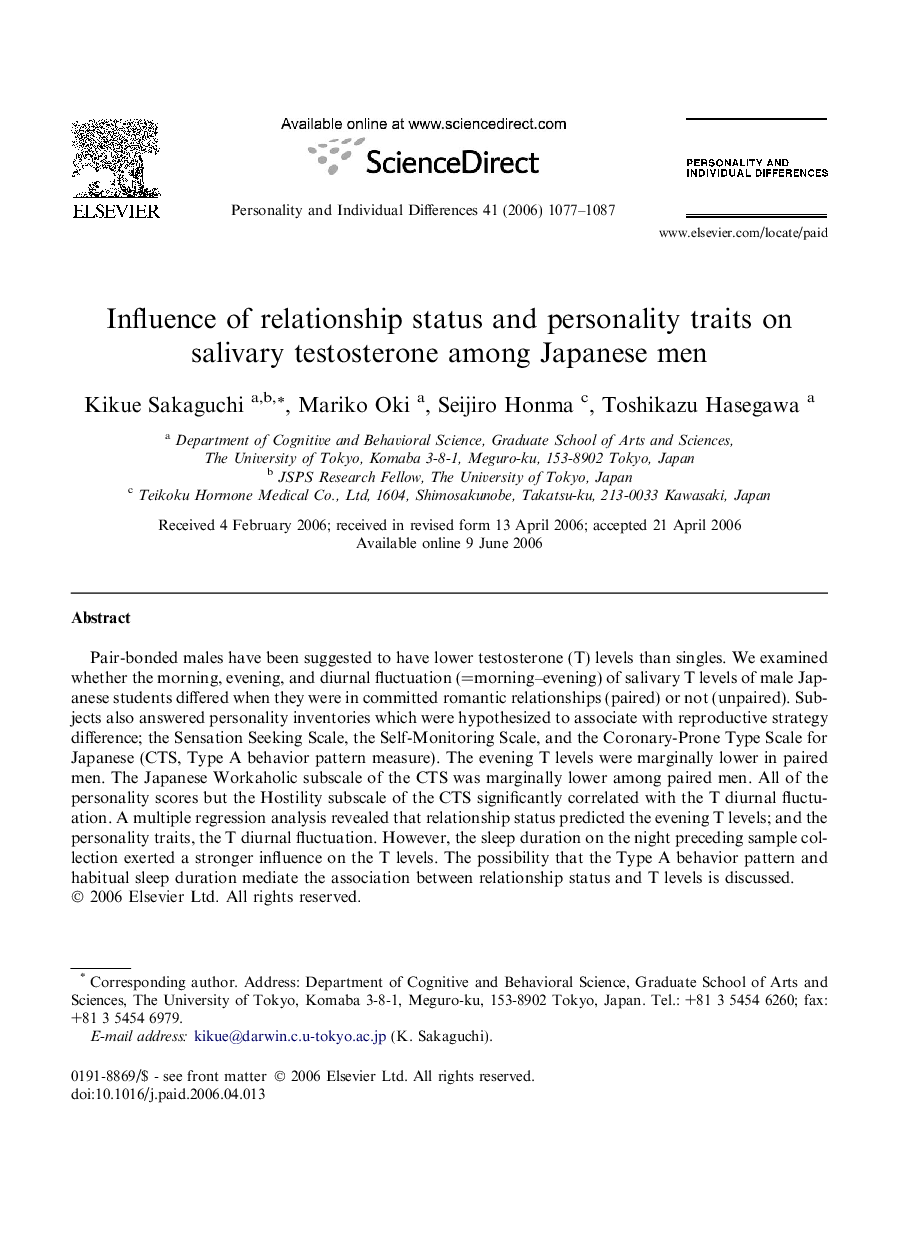| Article ID | Journal | Published Year | Pages | File Type |
|---|---|---|---|---|
| 893381 | Personality and Individual Differences | 2006 | 11 Pages |
Pair-bonded males have been suggested to have lower testosterone (T) levels than singles. We examined whether the morning, evening, and diurnal fluctuation (=morning–evening) of salivary T levels of male Japanese students differed when they were in committed romantic relationships (paired) or not (unpaired). Subjects also answered personality inventories which were hypothesized to associate with reproductive strategy difference; the Sensation Seeking Scale, the Self-Monitoring Scale, and the Coronary-Prone Type Scale for Japanese (CTS, Type A behavior pattern measure). The evening T levels were marginally lower in paired men. The Japanese Workaholic subscale of the CTS was marginally lower among paired men. All of the personality scores but the Hostility subscale of the CTS significantly correlated with the T diurnal fluctuation. A multiple regression analysis revealed that relationship status predicted the evening T levels; and the personality traits, the T diurnal fluctuation. However, the sleep duration on the night preceding sample collection exerted a stronger influence on the T levels. The possibility that the Type A behavior pattern and habitual sleep duration mediate the association between relationship status and T levels is discussed.
